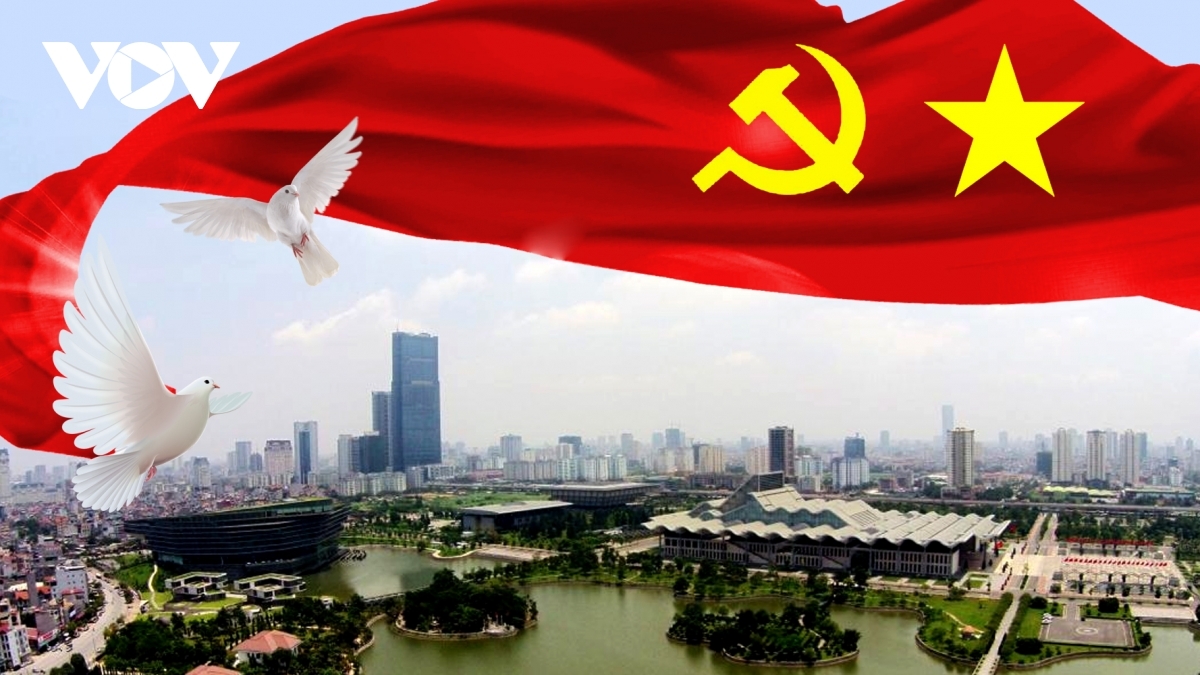Aspiration for national development, innovation
VOV.VN - The draft political report submitted to the 13th National Party Congress emphasized the fundamental transformation of Vietnam's economy into a growth model which efficiently uses resources, scientific and technological advances, and innovation.
This shows the Party, State and people of Vietnam’s desire to steer the country to a new level of development.
Economist Tran Du Lich says that economic transformation on the basis of efficient use of resources, scientific and technological advances, and innovation was approved by the 11th National Party Congress in its economic development strategy for 2011-2020.
At the 12th Congress, this strategy was concretized by keeping abreast of the overall development trend of the times and clarifying the role of science and technology in economic development, in which digital technology will drive a leap in productivity.
According to Dr. Lich, last June, the Government adopted a program to digitize the entire economy from 2020-2030 and by 2025 the Vietnamese economy will operate digitally.
To achieve this goal, Dr. Lich suggests a change of mindset, saying "My example is management figuring out how to motivate creativity. State management must boost creativity, not fasten a grip on it. Businesses need incentives to turn technological innovation into digital transformation and capitalize on new-generation free trade agreements.”
In order to promote creativity in accordance with the guidelines of the Party and State, Vietnam needs to build an ecosystem that mobilizes resources from people and businesses. That ecosystem must be transparent and provide equal opportunities for innovation. How much innovation is fostered will depend on the productivity of each enterprise.
Finance expert Nguyen Xuan Bieu says, “The Party must be able to lead and consolidate human knowledge. The Government must create mechanisms and ecosystems which allow each economic sector, each citizen to be creative. Once a workspace is created in which every worker and business can express their ideas and feel secure legally, this country will flourish.”
As people and businesses gain the freedom to be creative, the 13th National Party Congress can justifiably affirm the private sector as a driving force for economic development.
According to Huynh Van Minh, former chairman of the Ho Chi Minh City Business Association, two key resources of Vietnam's economy are domestic enterprises and foreign-invested enterprises of which most are private.
“I think mechanisms must be reformed to create favorable conditions for small and medium-sized businesses, especially micro-businesses and startups,” notes Minh.
Human resources determine every success or failure. The human factor is emphasized in draft documents of the 13th National Party Congress, which insists that a cadre must have both virtue and talent.
Nguyen Huu Chau, a member of the Social and Cultural Advisory Council of the Vietnam Fatherland Front, says that in order to realize national development aspirations, it is necessary to build a contingent of cadres who aspire to change.
“Cadres must be moral and loyal to Marxism-Leninism, Ho Chi Minh Thought, and socialism," Chau stresses. "Talent is important for understanding information technology and innovation. Ideological enlightenment must be on a par with morality. Today’s generation of cadres must consider the people as the root and be close to the people.”
Innovation, science and technology, and human resources will be the foundation on which Vietnam will thrive during the 4th Industrial Revolution.

